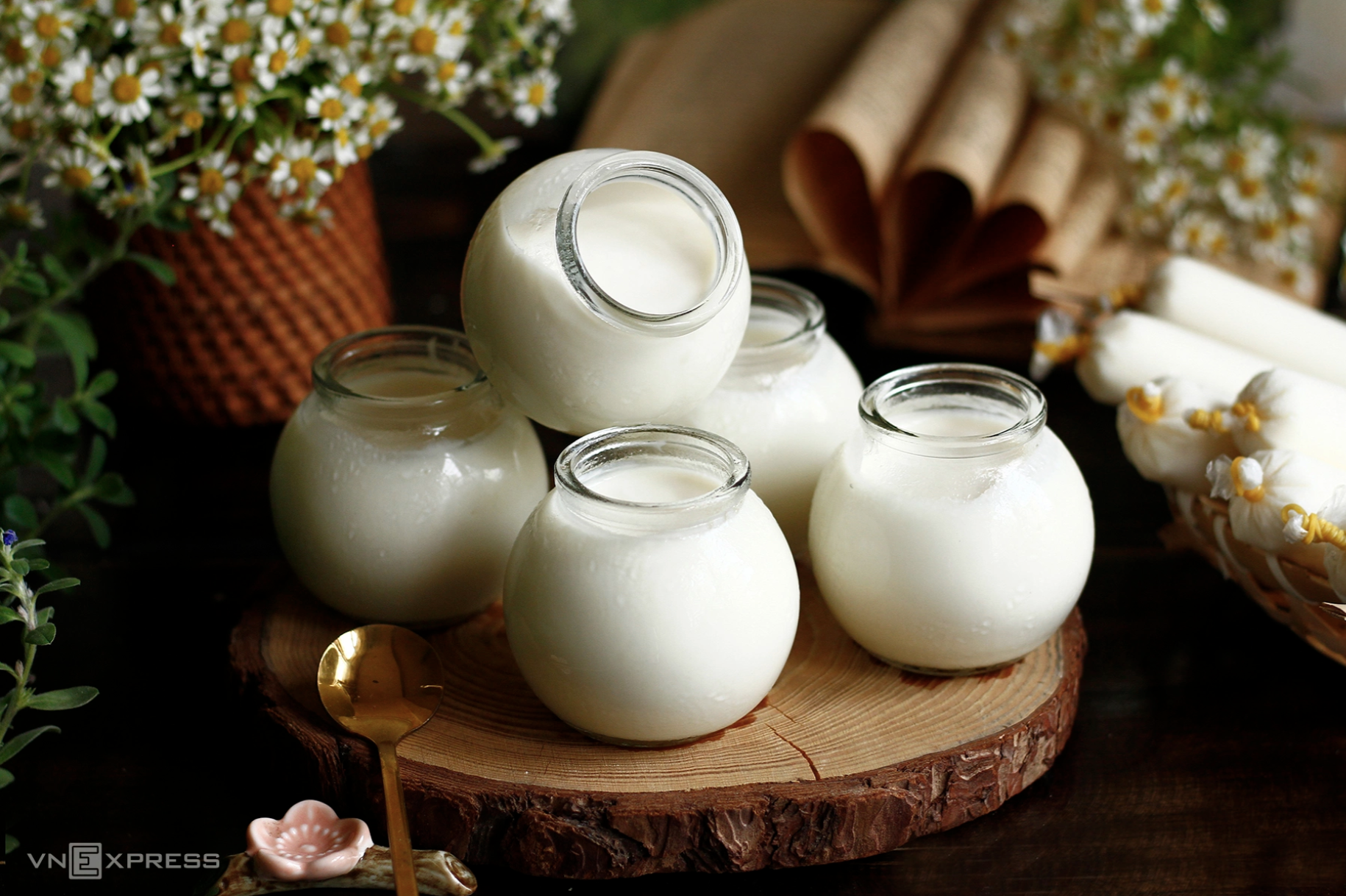Nurse Nguyen Thi Thu Hang from the University of Medicine and Pharmacy Hospital in Ho Chi Minh City - Facility 3, suggests 8 common foods that can help manage high blood pressure.
Bananas are rich in potassium, a nutrient proven to help lower blood pressure. One medium banana provides about 375 mg of potassium—about 11% of the recommended daily intake for men and 16% for women. However, patients with end-stage renal disease should be cautious about potassium intake. In such cases, consult a doctor before consuming bananas.
Many yogurts are rich in probiotics, beneficial bacteria that can help control blood pressure. A 2014 review published in the journal Hypertension concluded that regular probiotic consumption reduces systolic blood pressure by almost 3.6 mmHg and diastolic blood pressure by about 2.4 mmHg.
 |
Yogurt is rich in probiotics, which help control blood pressure. Photo: Bui Thuy |
Yogurt is rich in probiotics, which help control blood pressure. Photo: Bui Thuy
Fatty fish like tuna, salmon, and mackerel are rich in omega-3 fatty acids, which have been shown to reduce the risk of heart attacks and strokes. A 2022 study published in the Journal of the American Heart Association found that people who consumed 2-3 g of the two omega-3 fatty acids DHA and EPA lowered their blood pressure by about 2 mmHg compared to those who did not.
Broccoli is considered one of the healthiest foods. This vegetable is rich in flavonoid antioxidants, which enhance blood vessel function and increase nitric oxide levels. Nitric oxide dilates blood vessels, thereby reducing blood pressure.
Carrots contain many phenolic compounds such as chlorogenic acid, p-coumaric acid, and caffeic acid that help relax blood vessels and reduce inflammation, which can lower blood pressure.
Beets provide many nutrients beneficial for overall health, especially the circulatory system, including potassium, magnesium, and powerful antioxidants (vitamins C and E, beta-carotene, and quercetin). The nitrates in beets have also been shown to contribute to effectively lowering blood pressure.
Citrus fruits such as tangerines, oranges, and grapefruits are rich sources of antioxidants (vitamins C and E, polyphenols, and flavonoids), which protect the body from oxidative stress and contribute to keeping blood pressure within a stable range. Some studies indicate that consuming citrus fruits for about 12 weeks can help control systolic blood pressure.
Beans and nuts, such as soybeans, mung beans, red beans, lentils, walnuts, almonds, and chia seeds, provide abundant folate, magnesium, and potassium, which help improve hypertension and protect cardiovascular health. Nuts are high in unsaturated fats and magnesium, which help control blood pressure levels. The high fiber and protein content in beans and nuts will help people with hypertension feel full longer, thereby limiting the risk of excessive weight gain and helping them maintain a healthy weight.












